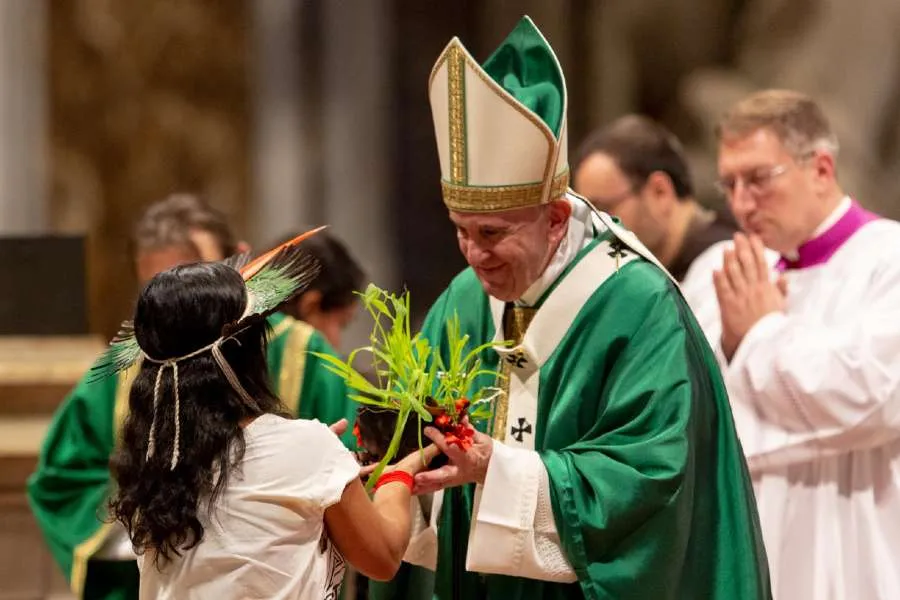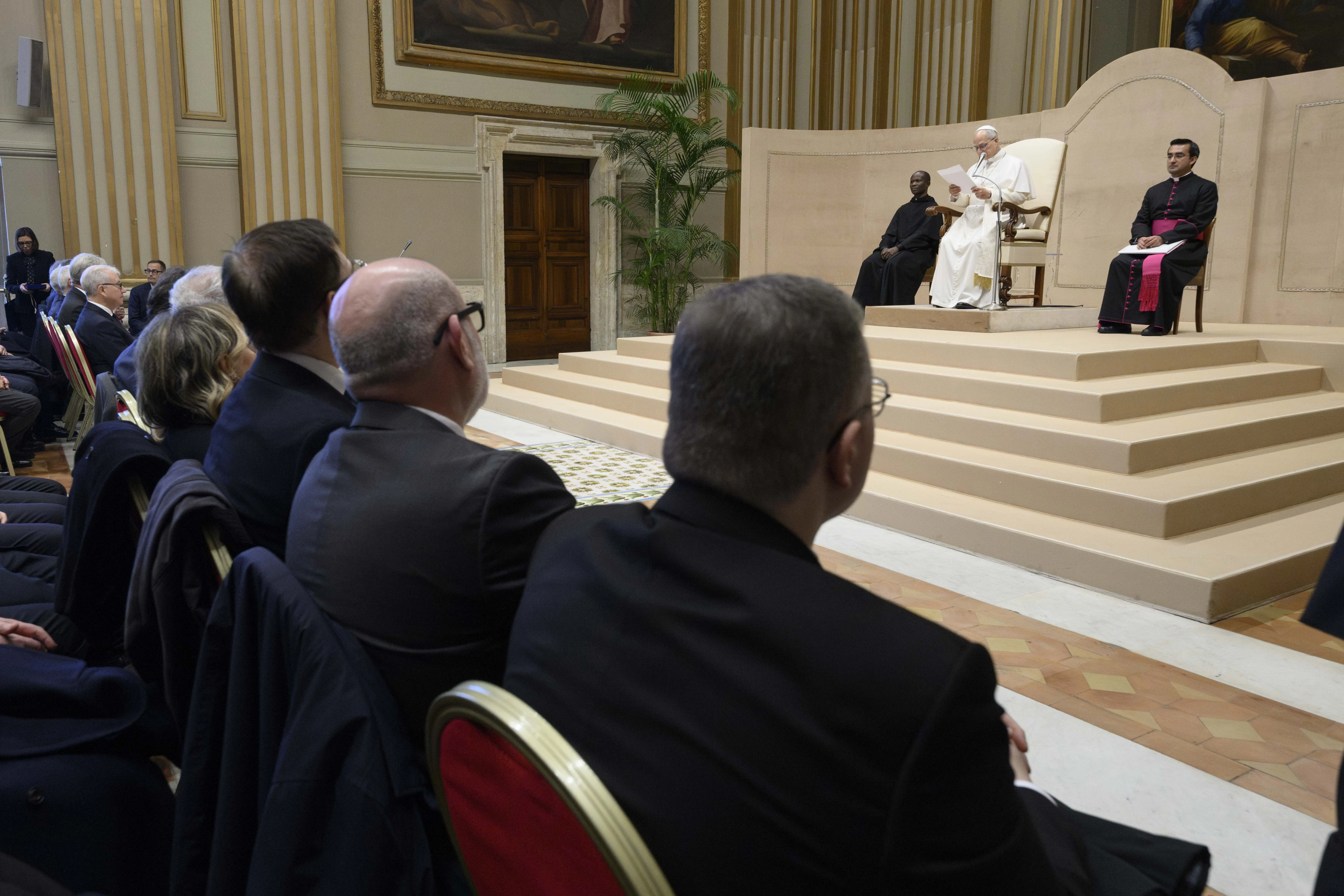“Let us not be quick to describe as superstition or paganism certain religious practices that arise spontaneously from the life of peoples,” Pope Francis wrote.
“It is possible to take up an indigenous symbol in some way, without necessarily considering it as idolatry. A myth charged with spiritual meaning can be used to advantage and not always considered a pagan error. Some religious festivals have a sacred meaning and are occasions for gathering and fraternity, albeit in need of a gradual process of purification or maturation,” he explained.
“The greatest danger would be to prevent them from encountering Christ by presenting him as an enemy of joy or as someone indifferent to human questions and difficulties,” he added.
In a section entitled, “Expanding horizons beyond conflicts,” Pope Francis lays forth his call for a transcendence of conflict:
“It often happens that in particular places pastoral workers envisage very different solutions to the problems they face, and consequently propose apparently opposed forms of ecclesial organization,” Pope Francis said.
(Story continues below)
“When this occurs, it is probably that the real response to the challenges of evangelization lies in transcending the two approaches and finding other, better ways, perhaps not yet even imagined. Conflict is overcome at a higher level, where each group can join the other in a new reality, while remaining faithful to itself,” he added.
Pope Francis presented his four dreams -- social, cultural, ecological, and ecclesial -- for the “Beloved Amazon” region with indigenous poetry interspersed throughout the apostolic exhortation.
“Poets, contemplatives and prophets, help free us from the technocratic and consumerist paradigm that destroys nature and robs us of a truly dignified existence,” the pope wrote.
The pope also made a point that this apostolic exhortation is addressed “to the whole world,” not just to the Amazonian region.
“The equilibrium of our planet ... depends on the health of the Amazon region,” he said. “It serves as a great filter of carbon dioxide, which helps avoid the warming of the earth.”
Francis’ ecological dream for the region encompasses an integral need to protect the human dignity of people living in the region.
“We do not need an environmentalism that is concerned for the biome but ignores the Amazonian peoples,” he wrote. “My predecessor Benedict XVI condemned ‘the devastation of the environment and the Amazon basin, and the threats against the human dignity of the peoples living in that region.’”
“We cannot allow globalization to become a new version of colonialism,” Pope Francis said after apologizing for historic “crimes committed against native peoples during the so-called conquest of America.”
Colonization has not ended, Pope Francis said, it has been “changed, disguised and concealed, while losing none of its contempt for the life of the poor and the fragility of the environment.”
Pope Francis signed the post-synodal apostolic exhortation on February 2 in the Archbasilica of St. John Lateran, the cathedral of the Bishop of Rome.
“The pastoral presence of the Church in the Amazon region is uneven, due in part to the vast expanse of the territory, its many remote places, its broad cultural diversity, its grave social problems, and the preference of some peoples to live in isolation. We cannot remain unconcerned; a specific and courageous response is required of the Church,” Pope Francis said.
Courtney Mares is a Rome Correspondent for Catholic News Agency. A graduate of Harvard University, she has reported from news bureaus on three continents and was awarded the Gardner Fellowship for her work with North Korean refugees.








